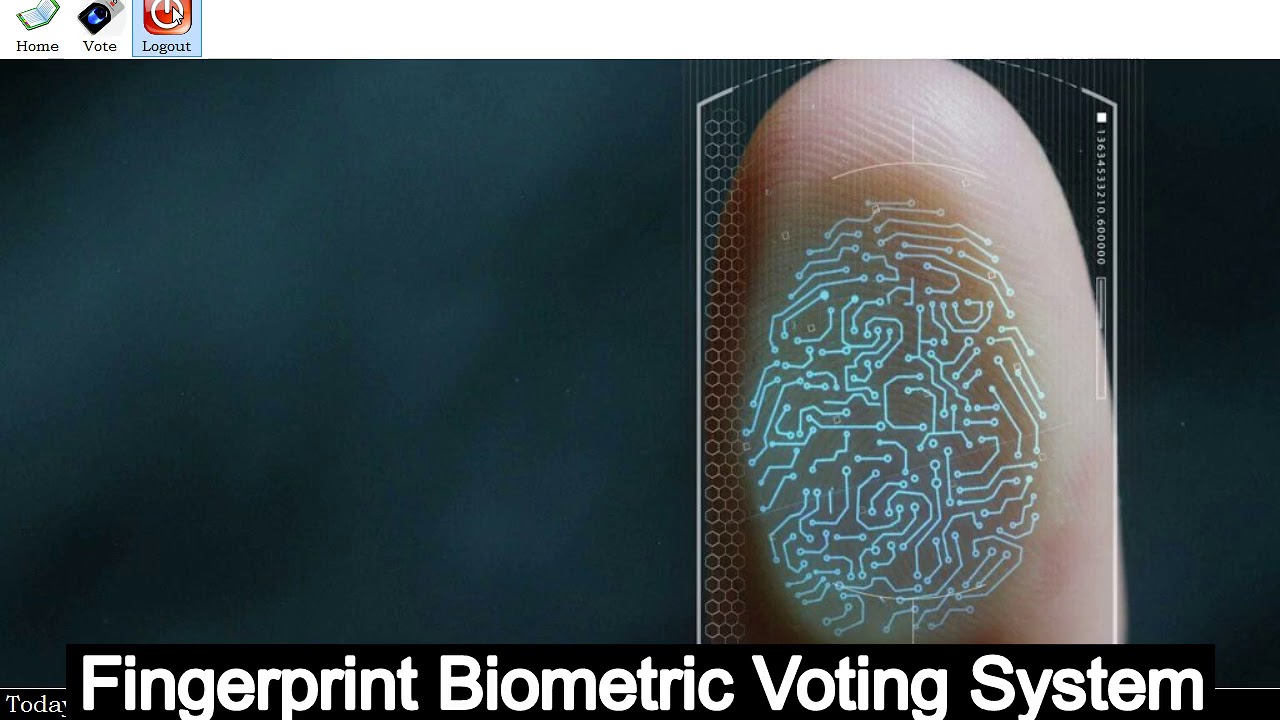
Monrovia –The National Elections Commission has announced that the country electoral management system will move from the Optical Manual Registration (OMS) or optical mark recognition for secure voter registration to fingerprint biometrics or Biometric Voter Registration for the 2023 General and Presidential elections.
NEC Chairperson Davidetta Browne Lansanah said that portable tablets with fingerprint scanners will be used to capture thumbprints for a biometric voter registry, according to The New Dawn Liberia. The biometrics could also be used for deduplication and the prevention of impersonation. Facial images will also be collected, and the NEC will attempt to reduce the volume of incorrect voter data in the system.
So, what are differences between the two forms of registration, and how the biometric Voter Registration be used for the 2023 elections?
WHAT IS BIOMETRIC VOTER REGISTRATION?
Biometric Voter Registration involves the use of biometric technologies with the use of computers, fingerprint scanners and digital cameras to capture the biodata of applicants. It uses unique features of voter’s physical characteristics, such as facial features or fingerprints in addition to demographic data to identify them.
Once a biometric voter registry has been established, some of the captured data can be printed and/or stored electronically on voter ID cards. A voter’s photo is usually printed on their ID card sometimes; cards also include an image of a fingerprint and the voter’s signature. Voter ID cards can also store biometric information in digital format on a microchip, magnetic strip or barcode included on the card
WHY BIOMETRIC VOTER REGISTRATION?
The old method of registering voters like the OMS which Liberia has been using did not have inbuilt mechanism for detecting multiple registrations, therefore there were instances where some individuals registered more than once. But the Biometric technology will make the detection and removal of multiple registrations from the system possible. With this, a more accurate and reliable voter registry will be produced for the elections.
Biometric technology can also significantly decrease opportunities for multiple voting. During registration, biometrics can be used to detect and prevent multiple registrations, and biometrics used in polling stations can clearly establish a voter’s identity and thus mitigate the risk of impersonation, identity theft, the misuse of records of deceased voters, carousel voting and ballot-box stuffing.
Additionally, biometric voter registration can help to easily identify voters at polls, known as biometric voter identification (BVI). For instance, at a polling station, electronic devices such as electronic poll books is used to scan a voter’s fingerprint. The device then checks the fingerprint against other prints stored in the Biometric Voter Registration database, if it matches any of the fingerprints in the database, the voter’s identity is verified and revealed. But without the e-Poll book, the voter identification can also be done completely without inter connectivity.
The voter identification system is offline on Election Day and requires no network connectivity. A voter’s eligibility, his or her fingerprint is scanned. If the fingerprint can be matched against the record of an eligible voter in the registration database, the voter’s picture is shown on the device so that everyone in the polling station, including observers, can identify the voter. The voter is issued a paper receipt and may proceed to cast his or her vote.
HOW THE SYSTEM WORKS?
The BVR system operates on an SQL server that is housed in a central location. Data collected using individual kits is transferred to a flash drive and then periodically uploaded to the server. This system allows data from remote regions to be transferred to the central server without having to physically transport them and allows the kits to be continually used for registration without any disruption.
With this system in place, the voter identification on Election Day can be done completely offline without requiring any internet connectivity. The SQL Server is a relational database management system from Microsoft. The system is designed and built to manage and store information.
In Zambia, for instance, in 2010 the UNDP selected a company to supply biometric technology and associated services in order to upgrade Zambia’s voter register. The firm configured and deployed 1,000 biometric enrolment stations across the country with each station equipped with a biometric capture data device, identity management software and a power generation kit.
The inclusion of a power kit guaranteed that the registration process could be carried out even in rural communities where electricity supply is a problem.
And in 2021 the Electoral Commission of Zambia deployed Smartmatic biometric e-Poll books during the Presidential and Parliamentary elections using the portable biometric devices at polling sites to authenticate voters against “Zambia’s clean voter database”.
This case study of the Election Commission of Zambia shows how the country electoral management body gradually moved from just biometric Voter Registration to deploying e-Poll books to identify voters during elections.

Local Voices Liberia is a network of dedicated Liberian journalists based in the 15 counties working to lift the development concerns and progress of rural communities.


Methodology

True
The claim is rigorous and the content is demonstrably true.

Half True
The statement is correct, although it needs clarification additional information or context.

Unproven
Evidence publicly available neither proves nor disproves the claim. More research is needed.

Misleading
The statement contains correct data, but ignores very important elements or is mixed with incorrect data giving a different, inaccurate or false impression.

False
The claim is inaccurate according to the best evidence publicly available at this time.

Retraction
Upon further investigation of the claim, a different conclusion was determined leading to the removal of the initial determination.

Toxic
A rude, disrespectful, or unreasonable comment that is somewhat likely to make you leave a discussion or give up on sharing your perspective. Based on algorithmic detection of issues around toxicity, obscenity, threats, insults, and hate speech;

































































































































































































































































































































































































































































































































































































